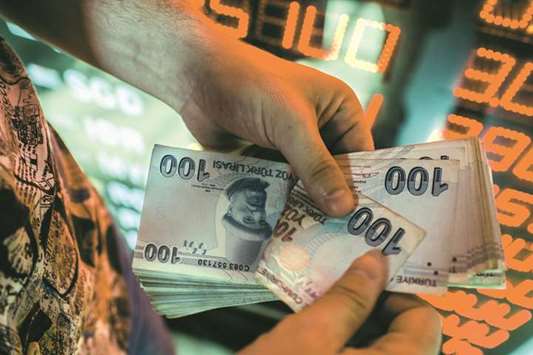In their first response to the market rout in the past week, Turkish policy makers said they’d curb economic growth ambitions to reduce borrowing.
The government has set a growth target of less than 4%, down from 5.5% originally, Treasury and Finance Minister Berat Albayrak’s office said.
The measures are Albayrak’s first whack at fixing the $880bn economy’s vulnerabilities since the most recent market rout was triggered by last week’s US sanctions. The penalties on two ministers in President Recep Tayyip Erdogan’s government were imposed over Turkey’s continued detention of an American pastor, sending lira assets to record lows and sparking fears that what began as a markets meltdown might spill over into the rest of the economy.
Although it’s good news that Turkey’s new economy czar finally spoke about his plan, investors are sceptical, according to Tim Ash, a senior emerging-market strategist at BlueBay Asset Management in London.
“It’s a case of seeing is believing in terms of delivery,” Ash said. “Albayrak needs to be specific in terms of how exactly he is going to cut the budget deficit this year. It’s great having nice targets but let’s not forget the Turkish central bank has a 5% inflation target and has not met it over the past decade.”
A lower growth target goes to the heart of Erdogan’s dispute with the International Monetary Fund and others warning that the Middle East’s largest economy may have overheated.
Erdogan rejects the notion that slower growth is the answer. He’s a fierce opponent of higher interest rates, and backed a wave of fiscal stimulus in the run-up to his re-election in June. He also prides himself on having freed Turkey from the “tutelage” of the Washington-based lender.
The lira initially erased some of its losses following Albayrak’s statement before falling again. It had weakened 2.4% to 5.4086 per dollar at 2.27pm in Istanbul. The currency has lost about 9% since the US sanctions were announced.

A money changer counts Turkish lira banknotes at a currency exchange office in Istanbul on Wednesday. The government has set a growth target of less than 4%, down from 5.5% originally, Treasury and Finance Minister Berat Albayrak’s office said.
